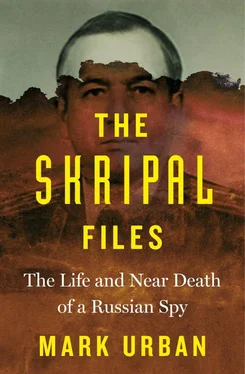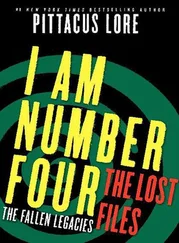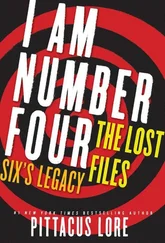* * *
Not long after Skripal came home from Malta, another GRU officer returning from overseas, Colonel Vyacheslav Baranov, became the subject of a counter-intelligence operation. Baranov had been working the Science and Technology line in Dhaka, the capital of Bangladesh. In 1989, close to the end of his posting, he offered his services to the CIA.
There was a good deal of hesitancy on both sides of this relationship. The CIA had been battered by the loss of so many of its key Russian sources, people who it would emerge had been betrayed from within the American intelligence machine. For his part Baranov offered the agency some information about the shooting down of a Korean airliner several years earlier, by way of establishing his credentials, but then became nervous about giving them something more substantial. To the CIA officers he presented a riddle – was the ex-fighter-pilot GRU man for real or a ‘dangle’, someone who was deliberately offered, providing only ‘chicken feed’ intelligence, as a way of exposing the American operation in Dhaka?
Returning to Moscow, Baranov had been given a protocol for contacting CIA officers at the US embassy. Early in 1990, after a few months of lying low, he started to use the system of signals he had been instructed in – a number to be scrawled in a phone booth or chalk marks left on the wall of a particular alleyway.
Baranov, who later told his story to a US journalist, found the agency people in Moscow both timid and incompetent. They were extremely aware of possible KGB surveillance, as one might expect, but also rather bad at responding to his signals and attempts to contact them. The twin fears of penetration and provocation were evidently playing on their minds.
In August 1992, after an espionage comedy of errors, more than two years in which he had only met a Moscow-based case officer once, Baranov was arrested at Sheremetyevo airport, about to board a plane to Vienna, where he was hoping to re-establish contact with the Americans. Tried in 1993, he was sentenced to six years’ hard labour. He served his sentence and eventually left Russia, with CIA assistance, in 2002. During his long captivity, Baranov became obsessed with the idea that a mole in the American intelligence world had betrayed him. At first he thought it might be Aldrich Ames, the CIA man arrested in 1994, but later his suspicions moved to another mole, an FBI man apprehended later. In fact, weighing up the evidence after his release from jail, the circumstances of these two penetrations did not quite fit and a lingering air of uncertainty surrounds the case.
Many years later, Sergei Skripal raised the Baranov case with me as I was about to leave his home. Coming to it cold, I was not then aware of its details. As I walked out of the front door, Sergei said, ‘I was the one who discovered him.’ He didn’t offer further facts, and I did not have the time to press him. Annoyingly, other events then prevented our conversation resuming.
Sergei’s revelation presents a number of possibilities: that Baranov’s discovery was not the result of a penetration at all, having been flagged up in other ways (for example a suspicious colleague in Dhaka); or that there was indeed information from a penetration but like many such leads it was vague, and Skripal helped pinpoint who it referred to.
In the context of this story though the Baranov story is interesting for a number of reasons. I discussed it, and Sergei’s role, with someone who was in the CIA at the time; he could not provide corroboration but did comment, ‘that would have built up Sergei’s credentials as a loyal officer’. Skripal of course was having doubts, particularly as he experienced the state of flux Russia entered in the months and years after his return from Malta. But as his work on the Baranov file showed, he was at that point still prepared to do his duty, and this may have contributed to the GRU’s willingness to post him abroad again, and to a more important station in a NATO country.
The lengthy surveillance of Baranov, his interrogation, and his trial may also have served a warning to people in the GRU that the risks of spying for the Americans were simply not worth it. They were penetrated, and their people in Moscow under intense surveillance. Sergei would have to look for other ways out if he was unhappy in his work and with what he saw happening to the country. And indeed events in the Kremlin were moving towards a dramatic denouement.
* * *
The party boss, Mikhail Gorbachev, had thrown in the towel in Afghanistan, pulling out his army by early 1989. At home, in many of the USSR’s republics, from the Baltic coast to the Caucasus mountains, the Kremlin’s liberal policies allowed an upsurge of nationalism and protest. To the officers at GRU headquarters it was all very worrying. This Gorbachev was loved in the West precisely, they felt, because he was giving everything away. The whole socialist bloc was crumbling.
With the fall of the Berlin Wall in November 1989, matters just seemed to accelerate. Friendly governments collapsed across Eastern Europe and in London or Washington the intelligence analysts began to pick up rumblings in the military and party of a possible coup.
That confrontation between Gorbachev and those who took it upon themselves to protect the achievements of socialism eventually came to a head in August 1991. Columns of tanks entered Moscow while the General Secretary was on holiday down south, and for a few days the ‘State Committee for the State of Emergency’, a half-hearted conservative junta, claimed to rule the country. Gorbachev managed to fly back to Moscow, the coup collapsed, and the Communist Party of the Soviet Union was banned. In less than a week the entire political work of more than seven decades was obliterated. Within months the break-up of the Soviet Union itself was starting. The country and its citizens were plunged into the most profound uncertainty, and in many cases hardship.
The case of Sergei Skripal’s brother Valery provides just one example. When these shocking events unfolded in Moscow, he was serving with the Soviet Army in Kazakhstan. As that Central Asian republic grasped its chance for independence it laid claim to military units (and indeed USSR state property) there as its own. Offered the chance to serve in the new Kazakh army, Valery declined. But the flat he lived in came with his post. He wanted to go to Russia – but would have no job or flat if he did so, and indeed nobody would even give him the cash for a ticket out of Kazakhstan. He was stranded and virtually penniless.
Elsewhere, officers and their families found themselves taking cattle trucks out of newly independent regions, or living for weeks in an airport terminal while trying to get a flight out to Russia. In some places locals tried to take over the flats where these army people lived, and armed soldiers were posted to stop them. It was all very ugly. Imagine this humiliation befalling all those officers who’d sworn to defend their Motherland with the last drop of their blood.
And what would happen to their mother Yelena, still living in Kaliningrad? The independence of the three Baltic republics – Estonia, Latvia, and Lithuania – left it an isolated enclave on the Polish border. Before, travelling home to Kaliningrad had been a matter simply of jumping on a train in Moscow, then heading across the same country. Now there would be international borders. For many, the essentials of life, from somewhere to live to an income that could keep pace with galloping inflation, were all suddenly in doubt. Sergei realized that he was the one best placed to look after his family. It was his duty to help his mother and brother.
In the two years after the failed coup, he watched things go from bad to worse. In October 1991, Russia’s new president, Boris Yeltsin, dismissed General Vladlen Mikhailov, the head of the GRU, over suspicions that the general had sympathized with the coup attempt a couple of months earlier. Mikhailov was replaced by a general from outside the intelligence branch, whose ‘sole contribution to military intelligence’, another Russian officer put it rather tartly, ‘was to build new canteens for senior officers of the directorate’.
Читать дальше












